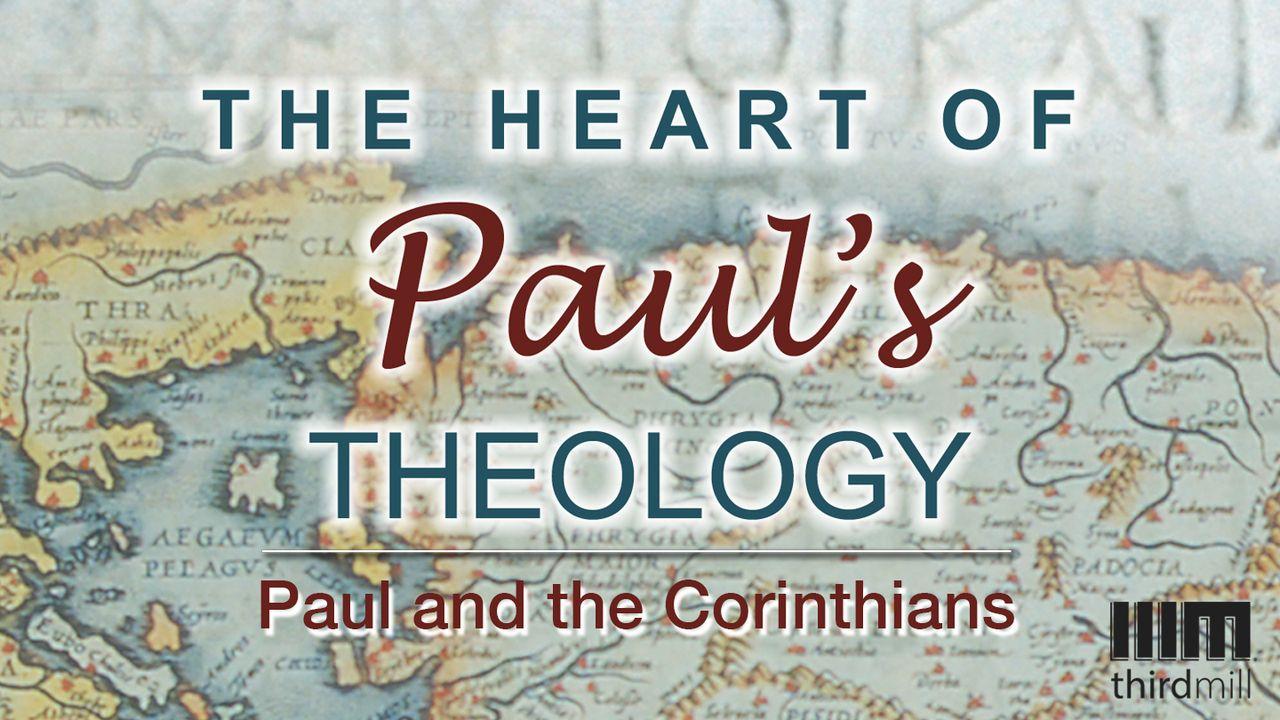The Heart Of Paul’s Theology: Paul and the CorinthiansExemplo

Paul’s Third Missionary Journey: Acts 18:23–21:17
Paul’s third missionary journey is recorded in Acts 18:23 through Acts 21:17. In these chapters we learn that Paul largely repeated the itinerary he followed on his second missionary journey. Paul began this trip around the year A.D. 52 or 53. As with his first two missionary journeys, he started in Antioch in Syria. In Acts we learn that he strengthened the believers throughout Galatia and Phyrgia. We are not told of specific cities he visited in these areas. Probably, he visited at least some of the cities in which he had previously ministered, such as Derbe, Lystra and Iconium in Galatia, and perhaps Antioch in the Phrygian region. Having passed through Galatia and Phrygia, Paul arrived in the coastal city of Ephesus in the province of Asia, or Asia Minor.
Upon his arrival in Ephesus, Paul encountered twelve disciples of John the Baptist, who quickly received the gospel of Christ. At first, Paul evangelized in the synagogue, but within about three months, the Jews became hardened to his message. So for the next two years he preached the gospel and performed miracles elsewhere in the city.
Eventually, however, Paul and his compatriots came into conflict with the artisans who crafted shrines of Artemis, the patron goddess of Ephesus. Evidently, Paul had won so many converts to Christ that the market for pagan shrines had shrunk considerably. As a result, the artisans nearly rioted, threatening the safety of some of Paul’s associates.
After this event, Paul and his traveling companions spent several months in Macedonia and Achaia, regions that lie within modern-day Greece. Luke’s record on this part of Paul’s journey is scant, yet he does mention that the company started their return to Asia from the city of Philippi. Paul and his companions disembarked at Troas. Because he planned to remain there for only one day, he gathered the believers and spoke to them late into the night. As Paul spoke a young man named Eutychus fell asleep and fell to his death from a window. However, Paul miraculously revived him.
Leaving Troas, Paul and his company traveled to the neighboring city of Assos, where they again took to sea. They stopped in Mitylene, Chios and Samos, and eventually reached Miletus, where they remained for a brief period. While in Miletus, Paul sent for the elders of the church in the nearby city of Ephesus. He gathered them in Miletus to give them some parting instructions and to bless them.
After this, the company set sail again. Passing through Cos, Rhodes, Patara and Cyprus, they landed in Tyre, where they ministered for a week. From there they sailed to Ptolemais, then to Caesarea, where the Judean prophet Agabus warned Paul that he would be arrested in Jerusalem, confirming what Paul already knew to be true. Yet, not dissuaded by Agabus’ prophecy or by the pleading of his friends, Paul continued on to Jerusalem, where he ended his journey around the year A.D. 57.
Paul wrote his two canonical letters to the Corinthians during this third missionary journey, as well as two additional letters that have not been preserved. 1 Corinthians was probably written from Ephesus, perhaps in A.D. 55. Shortly after sending this letter, Paul briefly visited Corinth, during which time he was grievously offended by a member of the church there. Subsequent to this visit, he wrote a letter that is now lost to us, sometimes called his “Sorrowful Letter.” Later, after receiving a report from Titus about the positive way his sorrowful letter had been received, Paul wrote 2 Corinthians, probably from Macedonia, and most likely within a year or so of writing 1 Corinthians.
Click here to watch The Heart of Paul's Theology: Paul and the Corinthians, lesson four in the series The Heart of Paul's Theology.
Biblical Education, For the World. thirdmill.org
Sobre este plano

This reading plan explores the background to Paul's letters to the Corinthians, examines the structure and content of First and Second Corinthians, and reveals his eschatology.
More





